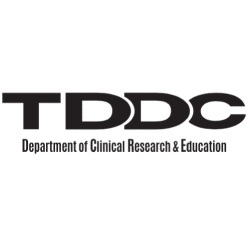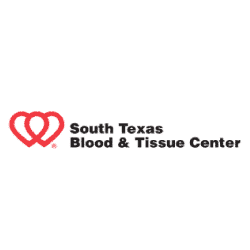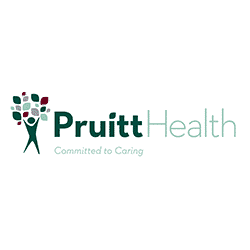Essential Steps for Safe Medical Waste Disposal in Urgent Care Centers
Managing medical waste is a critical responsibility for any urgent care center. Improper medical waste disposal can lead to severe health hazards, legal penalties, and financial consequences.
Through the implementation of safe and compliant waste management practices, urgent care centers can protect patients, staff, and the environment. At the same time, it ensures all regulatory standards are met.
Here’s a guide to the essential steps for managing medical waste safely in your urgent care center.
1. Understand the Different Types of Medical Waste
Before you can properly dispose of medical waste, it’s essential to understand its different types. Medical waste in urgent care centers can include a range of materials, such as:
- Sharps: Needles, syringes, scalpels, and other sharp objects that pose a risk of puncture wounds and infections.
- Biohazardous waste: Items contaminated with blood or bodily fluids, including gloves, gauze, and bandages.
- Pharmaceutical waste: Unused or expired medications.
- Chemical waste: Cleaning agents and disinfectants used within the center.
Understanding what type of waste you’re dealing with is crucial for segregating it properly and ensuring it’s disposed of correctly.
2. Set Up a Waste Segregation System
One of the most important steps in managing medical waste is ensuring proper segregation at the point of generation. Setting up a waste segregation system will prevent cross-contamination and ensure that each type of waste is disposed of according to its specific requirements.
Here’s how you can get started:
- Color-coded bins: Use color-coded containers for different types of waste. For example, use red containers for biohazardous waste, yellow for sharps, and blue for recyclable materials. Make sure the containers are clearly labeled and easy for staff to access.
- Sharps disposal: Ensure that sharps containers are available at every treatment station. These containers should be puncture-resistant and securely closed to prevent accidental exposure.
- Separate pharmaceutical waste: Expired medications or unused prescriptions should be placed in a designated container that complies with state and federal regulations for pharmaceutical waste.
By setting up a clear waste segregation system, you make it easier for your staff to dispose of materials correctly. It also reduces the risk of accidents or contamination.
3. Regular Staff Training
Your staff needs to be well-trained in proper medical waste disposal procedures to ensure their safety and those of patients. Regular training on urgent care waste management is crucial to keep staff up-to-date with the latest protocols.
During training, cover these key areas:
- Handling of waste: Ensure staff members understand how to safely handle and dispose of sharps, biohazardous materials, and pharmaceutical waste. This helps minimize the chances of exposure to harmful substances.
- Personal protective equipment (PPE): Ensure your team is equipped with the proper PPE, including gloves, masks, and gowns, when handling medical waste. Training staff on how to use and dispose of PPE correctly is essential for maintaining safety.
- Emergency procedures: In case of a spill or exposure to hazardous waste, your staff should know the steps to take. Regular drills can ensure they respond effectively in emergencies.
Regular training keeps your staff informed and helps maintain compliance with medical waste disposal regulations. It also reduces the likelihood of accidents and ensures staff follow proper procedures at all times.
4. Partner with a Reliable Medical Waste Disposal Company
When selecting a waste disposal partner, here are some things to look for:
- Certification and licensing: Your waste management partner should be licensed and hold the necessary certifications to handle medical waste. Certifications and licenses ensure that the company complies with all local, state, and federal regulations.
- Timely pickups: Your waste disposal company should offer reliable, scheduled pickups to ensure waste is regularly removed and managed safely.
- Emergency support: Choose a company that offers responsive 24/7 support to promptly address emergencies, such as urgent waste-related issues or spills.
By partnering with a trusted medical waste disposal company, you can rest assured that your urgent care center is in good hands when it comes to safe and compliant waste disposal.
5. Stay Compliant with Documentation and Regulations
Keeping accurate records is a key aspect of medical waste disposal. Documenting your waste management activities helps you stay compliant with regulations and provides proof of your efforts in case of an audit or inspection. Make sure to:
- Document waste disposal: Track waste types, quantities, and disposal methods. Regularly review and update your documentation so that it reflects your current practices.
- Review regulations: Waste disposal regulations can change, so it’s essential to stay informed and comply with updates. Regularly review state and federal guidelines to ensure your procedures are up-to-date.
Maintaining thorough records and reviewing compliance standards ensures that your urgent care center adheres to regulations and minimizes any risk of violations.
Proper medical waste disposal is fundamental to running a safe, compliant urgent care center. By following these essential steps, from waste segregation to partnering with a certified disposal company, you can ensure that your center manages waste effectively while protecting your staff, patients, and the environment.
By taking a proactive approach to medical waste disposal, you safeguard your urgent care center’s reputation, enhance operational efficiency, and most importantly, keep everyone safe. For more tips and support on medical waste management, visit Medsharps.











